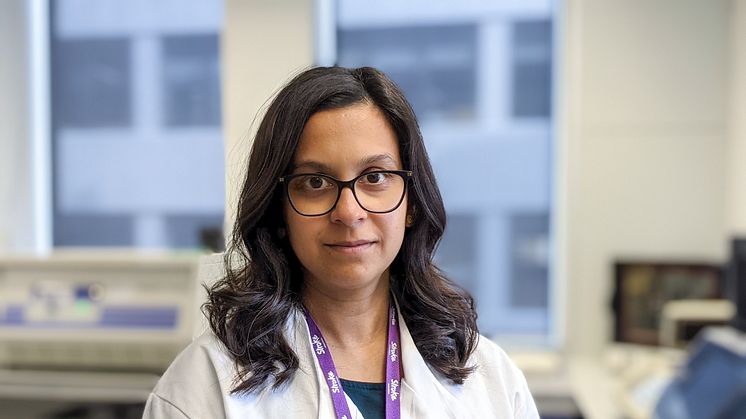
Press release -
Stroke Association response to: Iatrogenic Alzheimer’s disease in recipients of cadaveric pituitary-derived growth hormone published in Nature Medicine
Dr. Maëva May, Associate Director of Research at the Stroke Association said:
“Each year, 100,000 people in the UK have a stroke. Even for those who survive, it is a catastrophic event. Many are left unable to talk, walk, and need support to rebuild their lives.
“When we started funding Dr Banerjee, Stroke Association was eager to find out what her work could tell us about the risk of stroke in people who’ve received dura mater (the membrane covering the brain) or growth hormones from deceased donors. We’re very pleased that her work is also bringing benefits to our understanding of dementia and has the potential to help us find shared treatments for Alzheimer’s disease and certain types of bleeding stroke.
“More than 30 years ago, we learned that the people who received growth hormones from deceased donors – who were mainly children at the time they received it – were at increased risk of developing Creutzfeldt-Jakob disease (CJD). In light of this, the treatment was banned.
“Later studies revealed that those who’d had dura mater transplants were at increased risk of haemorrhagic (bleeding) strokes in their 30s and 40s due to cerebral amyloid angiopathy (CAA), which is a build-up of amyloid beta protein in the blood vessels. CAA is largely a disease of older adulthood, but these patients were developing it decades earlier than we’d usually expect. Given that the same protein is often present in growth hormone from deceased donors, it seemed likely that people who’d received it would also be at risk of CAA-related strokes.
“This new study has shown that those who received growth hormones are instead at risk of early onset Alzheimer’s disease as the amyloid beta protein is building up in the brain tissue as well as the blood vessels. We don’t yet understand why exposure to the same protein carries different risks for different people and we eagerly await further developments that could help unravel this mystery.
“The participants in this study are necessarily a very small group of people – under 2,000 people in the UK ever received growth hormone from deceased donors and research in this area currently relies on volunteers coming forward. However, this work has implications for Alzheimer’s disease and CAA in the general population, and we’re excited about the potential of this research to help us find shared treatments for these conditions.
“We’re proud to be working with Alzheimer’s Research UK and the NIHR to fund Dr Banerjee in the next stages of her work.
“We also want to reassure people learning about this research that they are not at risk of catching stroke or Alzheimer’s disease from touching a stroke survivor or someone living with dementia; the risk of catching either is tied to specific medical treatments that are no longer practiced. It is also extremely unlikely that you would be unaware if you had received growth hormones from a deceased donor; recipients and their families were notified by the government in the mid-1990s after the link to CJD was discovered.
“The people who’ve received these treatments have already been through so much: the initial condition that led to the treatment, the risk of CJD, the risk of bleeding strokes, and now the risk of early-onset Alzheimer’s disease.”
Related links
Topics
Categories
- Stroke strikes every five minutes in the UK and it changes lives in an instant.
- The Stroke Association is a charity working across the UK to support people to rebuild their lives after stroke. We believe that everyone deserves to live the best life they can after stroke. From local support services and groups, to online information and support, anyone affected by stroke can visit stroke.org.uk or call our dedicated Stroke Helpline on 0303 3033 100 to find out about support available locally.
- Our specialist support, research and campaigning are only possible with the courage and determination of the stroke community and the generosity of our supporters. With more donations and support, we can help rebuild even more lives.
- You can follow us on Twitter, Facebook and Instagram.












